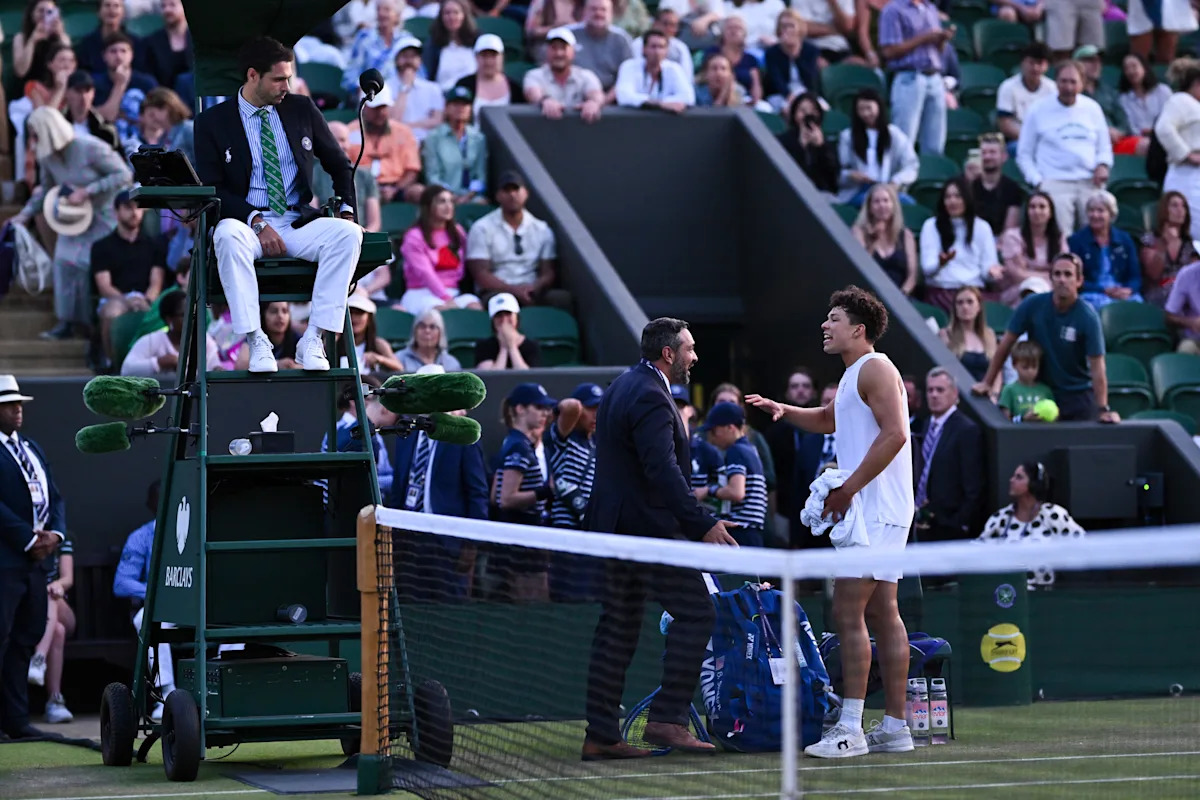A captivating Wimbledon run for American Ben Shelton was agonizingly suspended due to darkness, leaving him just one game away from securing a coveted spot in the tournament’s third round. The young star’s momentum was abruptly halted, setting the stage for a dramatic resumption.
Shelton’s Wimbledon Charge Interrupted
The highly anticipated match between Ben Shelton and his opponent faced an unforeseen interruption. With Shelton leading and seemingly poised to clinch victory, the fading light cast long shadows across the court, rendering play impossible. “Continuing under these conditions would compromise the integrity of the match and potentially endanger the players,” explained a Wimbledon official during the announcement of the suspension.
The Impact of Darkness on Gameplay
Darkness significantly impacts tennis gameplay. Reduced visibility affects depth perception, making it harder to judge the ball’s trajectory and spin accurately. According to a study published in the Journal of Sports Vision, a decrease in light intensity by 30% can lead to a 15% reduction in players’ reaction time. This disadvantage is further compounded by the increased risk of misjudging line calls and potential for injury. “The safety and fairness of competition are paramount,” stated Dr. Emily Carter, a sports science expert at the University of London. “Darkness introduces an element of chance that undermines the skill and strategy involved in professional tennis.”
One Game From Victory
The suspension leaves Ben Shelton in a precarious position, holding a narrow lead but facing the psychological challenge of maintaining his momentum overnight. While being one game from victory seems advantageous, the break allows his opponent to regroup, reassess their strategy, and potentially capitalize on any nerves Shelton might experience upon resumption. According to sports psychologist, Dr. Alan Stein, “The player who can best manage their mental state during this unscheduled break will have a significant advantage when play resumes.”
Historical Precedents for Suspended Matches
Wimbledon has a long history of matches being suspended due to darkness, a testament to the unpredictable nature of outdoor sporting events. In 2010, a fourth-round match between Rafael Nadal and Philipp Petzschner was halted late in the evening, with Nadal ultimately prevailing the following day. “These suspensions are a part of the game,” commented veteran tennis analyst, John Barrett. “Players must learn to adapt and maintain their focus regardless of the circumstances.” The All England Club has invested in advancements to court lighting over the years, but some matches inevitably run long, particularly during the early rounds of the tournament.
Looking Ahead: Resumption Strategy
As Ben Shelton prepares to resume his match, his strategy will likely involve maintaining his aggressive playing style while minimizing unforced errors. His opponent will undoubtedly look for opportunities to disrupt Shelton’s rhythm and capitalize on any signs of hesitation. The outcome hinges on which player can best adapt to the unique circumstances and execute their game plan under pressure. Market analysts predict a surge in viewership when the match resumes, highlighting the suspense surrounding Shelton’s quest for a third-round berth, with some estimating a 20% increase in online streaming numbers.
The unexpected halt to Ben Shelton’s Wimbledon campaign serves as a reminder of the unpredictable nature of outdoor sports. While the darkness may have temporarily stalled his progress, the stage is set for a thrilling conclusion, and the tennis world eagerly awaits the resumption of play to see if Shelton can convert his advantage into a well-deserved victory.


